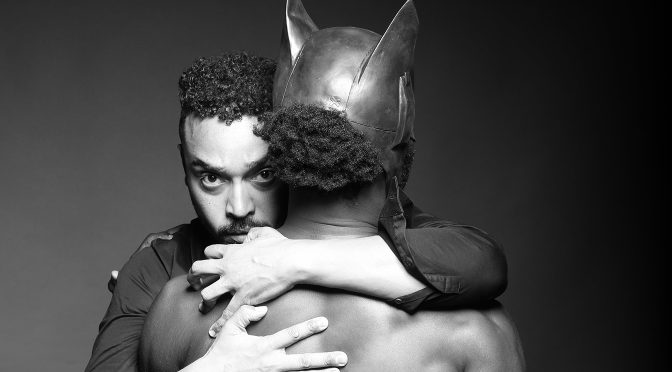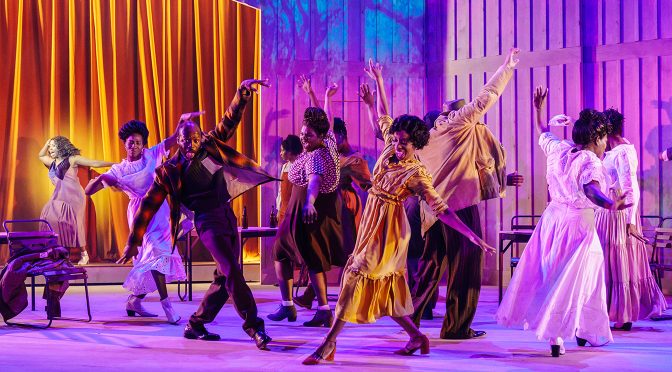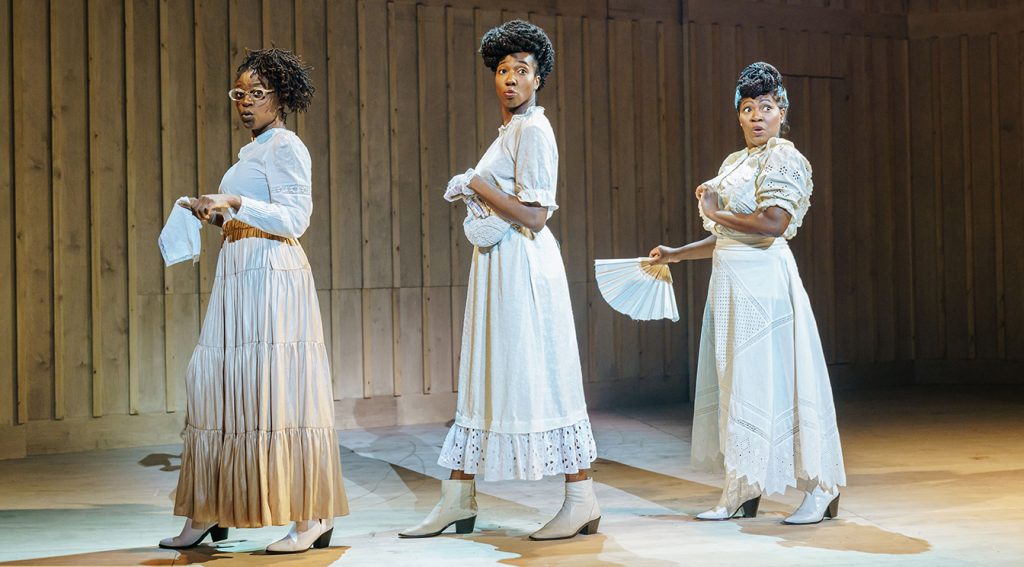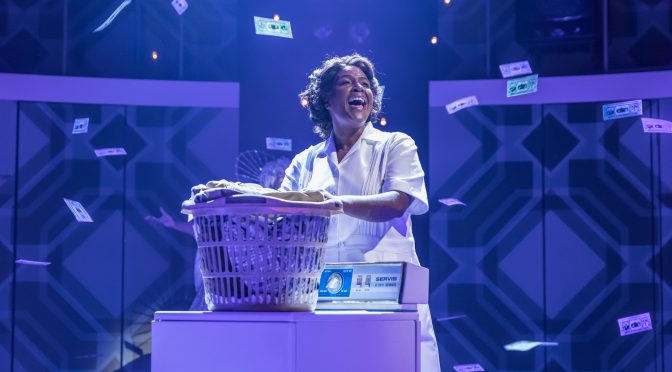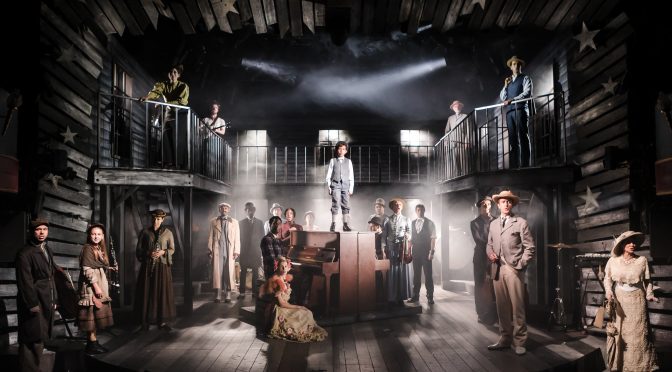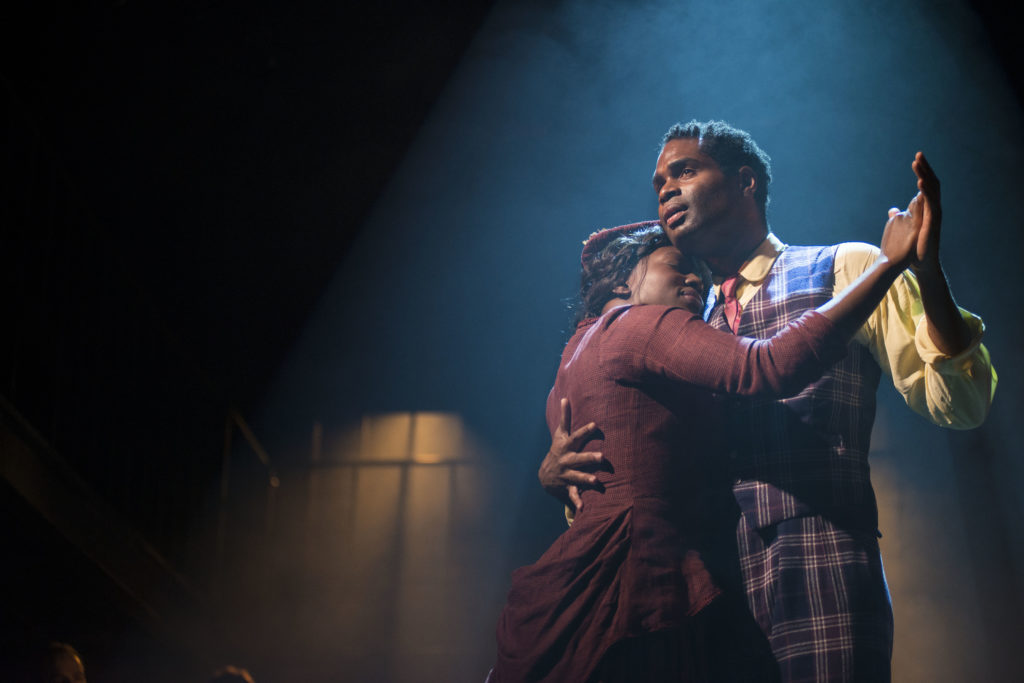Danny Lee Wynter’s debut play brims with wit, contemporary preoccupations and important issues. Like a lot of theatre lately, Black Superhero is concerned with representation. And the play offers valuable insight into racism and the pressure of hyper-masculinity on black men. But despite excellent performances and strong staging from director Daniel Evans, with the help of his designer Joanna Scotcher, the piece is over-stretched and confusing.
Discussions about race and gay life come via three friends: David, Raheem, and King. The trio are actors who, as actors do, talk about casting and in particular casting straight actors in gay roles. Oh, and they talk about King’s open marriage. The ideas are well observed and the chat funny – if it sounds a bit like a Twitter feed, that shows skill on Wynter’s part. But it is only David’s sister, Kweku, who really appeals; as a voice of no-nonsense that Rochenda Sandall delivers brilliantly, she is a great character who almost steals the show.
King is a successful actor, in a superhero franchise, and Dyllón Burnside takes the part with suitable charisma. King’s liberation (or maybe his midlife crisis if you prefer Kweku’s view) results in an affair with David. The latter’s fragility is revealed in Wynter’s sensitive performance of the part. But this central role is too slight – take David’s ambitions, he is cast as Horatio but wants to be Hamlet. David needs to be given more time. Maybe as a writer, Wynter has been overgenerous to his fellow performers? There is too little tension – we can see trouble ahead for David too easily. The subjects of absent fathers, abuse and trauma, make the piece emotionally powerful but are not developed in depth.
“What kind of queer are you?”
Changes of focus prove distracting. There’s a great scene with King interrogated about his sexuality at a press junket – extremely topical and very well done. Burnside is excellent at showing a frosty charm and frustration. And there’s another subplot about a producer (a strong role that Ako Mitchell is superb in) accused in “me too” style. While both tangents connect to Wynter’s larger themes, neither is explored sufficiently.
Nor is the central conceit effectively handled. The idea that we can learn a lot about ourselves and society from who our heroes are, is a premise with potential. The idea is employed in scenes of fantasy, as David imagines the films coming to life, that are theatrical highlights. But the idea is left hanging. Working out who the superhero here is – Danny, King or maybe his sister – could be engaging but ends up a puzzle.
Until 29 April 2023
Photo by Ajamu X

